If upper elementary school polyglot students had a collection of bathroom books, then A World of Wisdom would be in every single one of them. The same could be said if those ages also had a coffee table in their living room for those coffee table books that people pick up when they want to make interesting, idle chatter. A World of Wisdom is an illustrated book that humorously shows the absurdity that some idioms mean to those who don’t speak their native tongue. As a former ESL teacher, I can 100% tell you that “it’s raining cats and dogs” is incredibly silly to Chinese students. They’ll gamely play along as they practice and try to master one of the more common idioms in English. However, every country on the planet has some phrase or idiom that uniquely states a condition with such precision that it leaves text 50 times as long for want.
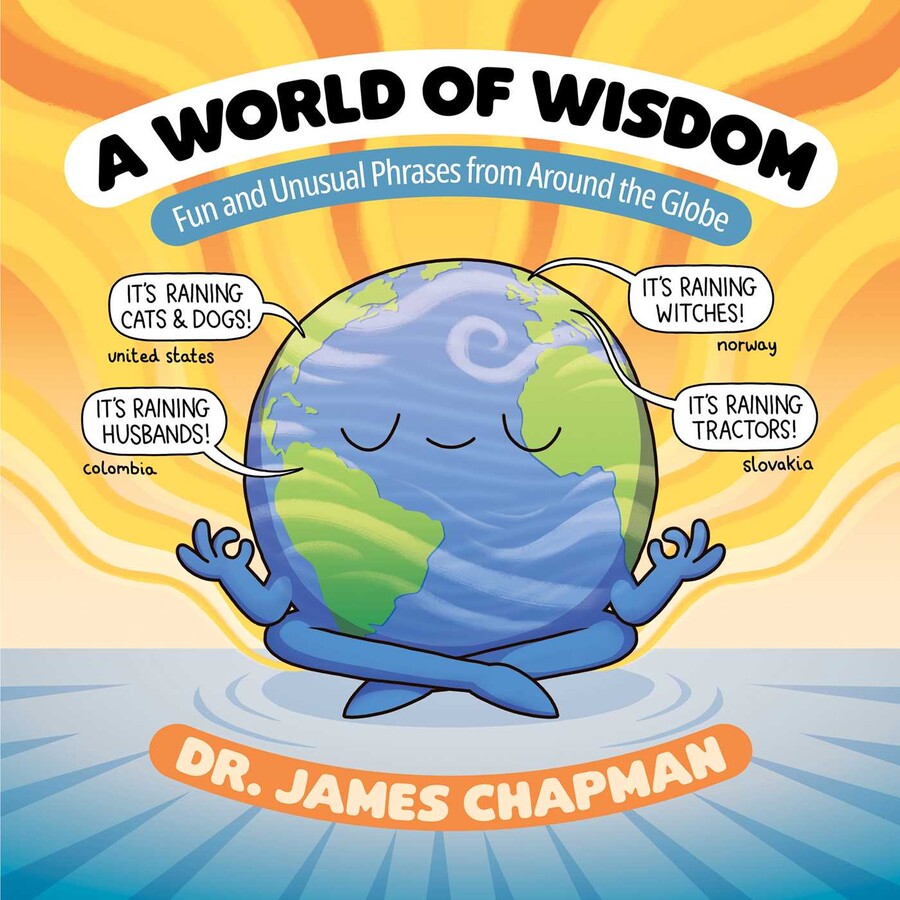
Some of the phrases in the book have central themes, such as animals, whereas others revolve around feelings, advice, or conditions, such as persistence. There are also some pages that cover the ubiquitous idioms that you didn’t know existed all over the world.
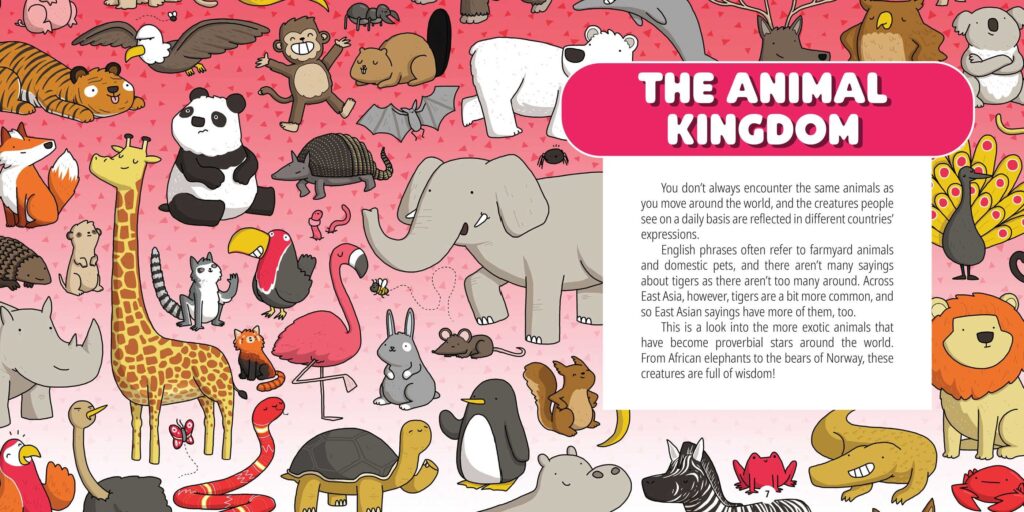
In Norway, it’s raining witches. In the Czech Republic, it rains wheel barrows in May. Lizard and snakes might fall in Brazil while barrels and casks will fall in Andorra. Any way you break it down, it’s all doing the same thing that broke my Chinese students into the rare bit of laughter, disbelief, or caused them to roll their eyes at me.
The categorized nuggets of life in A World of Wisdom, those that have more examples, are presented in their native language and the English translation. The Iranian saying of “No one finds treasure without trouble”, is written in Farsi, with the English definition below that. And we all know that being a pirate isn’t an easy life, but when you find the treasure it’s well worth the struggle, isn’t it?
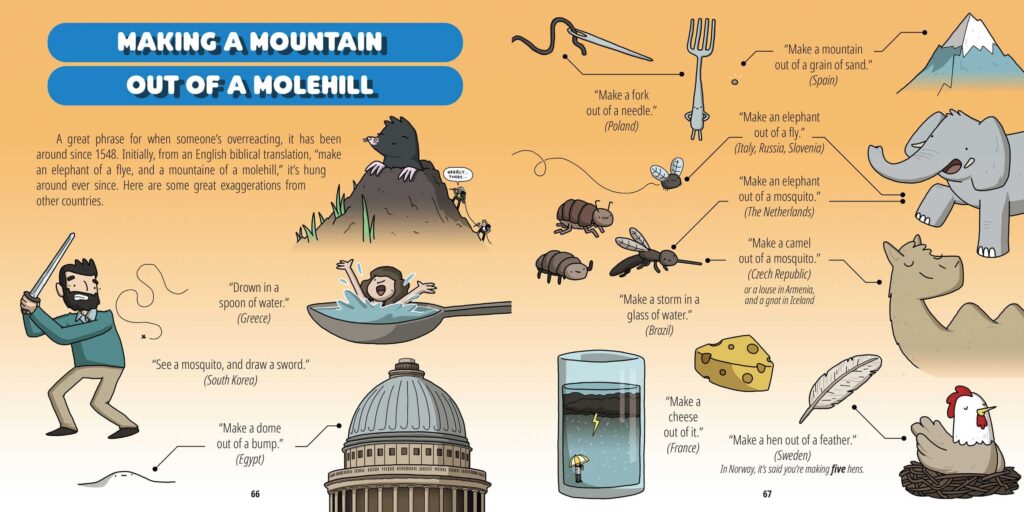
What young readers might not pick up on about A World of Wisdom is how much alike we all are. From South Africa, “A nice fig is often full of worms”, is a saying that alludes to the fact that you shouldn’t judge a book by its cover. There are many other examples of that saying from other countries that state the meaning in a way that might be easier for audiences to understand.
Young readers will laugh at the sayings and realize that they’re similar to the ones that they know. The sayings are akin to those wacky animal facts that those ages will get from National Geographic Kids. They’re short, easy to digest, fun to share, and give kids the desire to one-up the saying that their friend just shared. A World of Wisdom might also encourage kids to learn a second language. Ce n’est pas a un vieux singe qu’on apprend a faire la grimace. When the kid in class that’s learning French sees that statement they’ll light up.
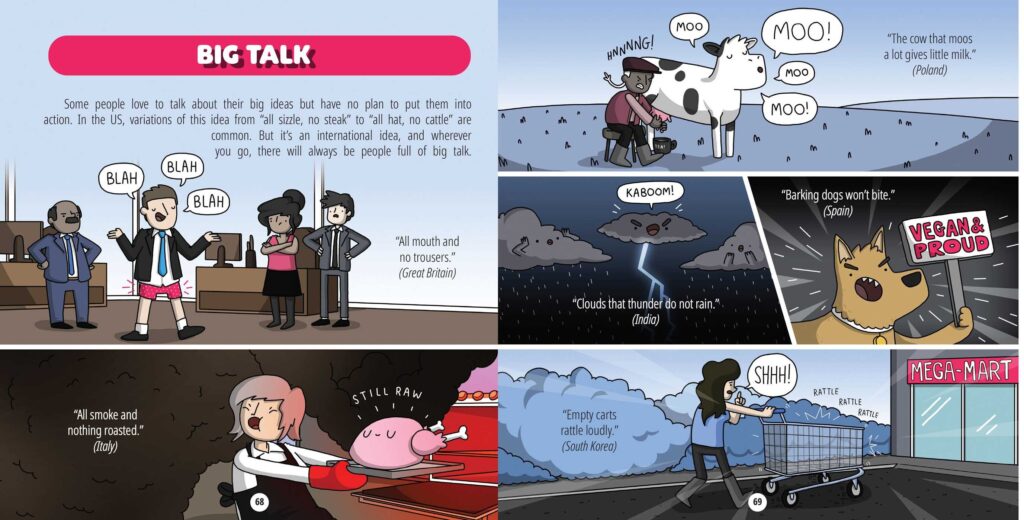
The illustrations in the book are big, very clever, colorful, and tell the complexity of numerous, hard-to-describe sayings, with ease and joy. A World of Wisdom is also shaped like those National Geographic Kids’ trivia books that they love. They’re square, easily fit in those mid-elementary hands, have great construction, and bring in readers due to their colors, keeping them with the non-fiction trivia.
A World of Wisdom is from author/illustrator Dr. James Chapman and available on Andrews McMeel Publishing.
There are affiliate links in this post.

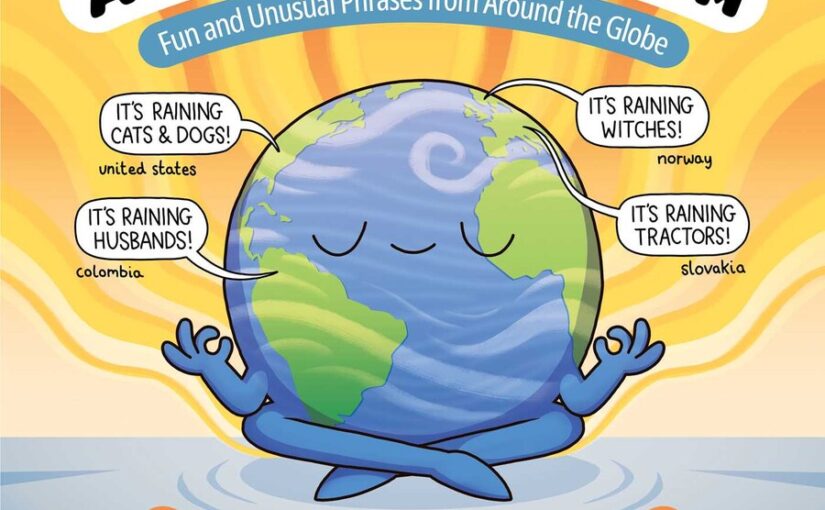



 Facebook
Facebook Twitter
Twitter Flickr
Flickr GooglePlus
GooglePlus Youtube
Youtube